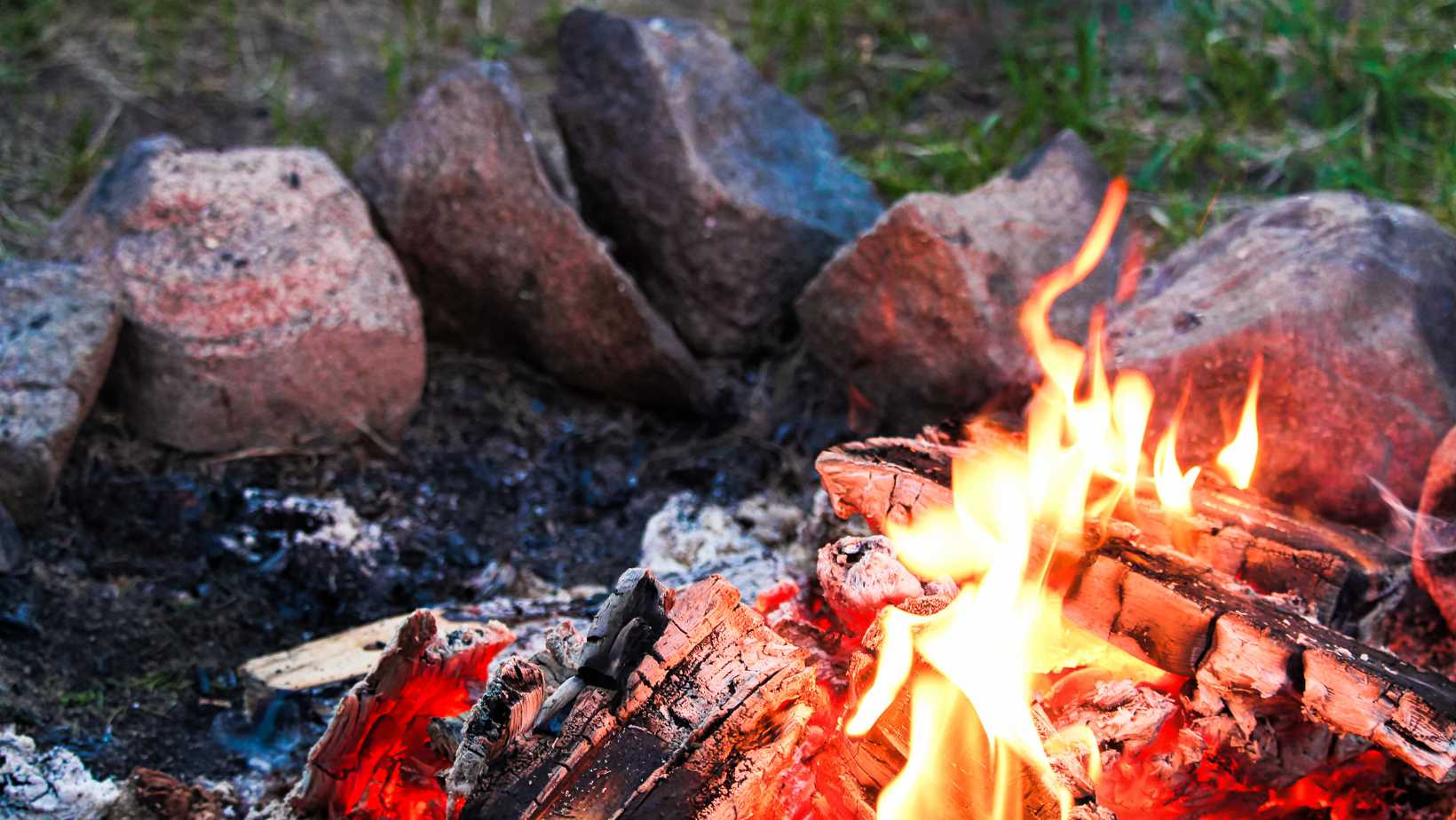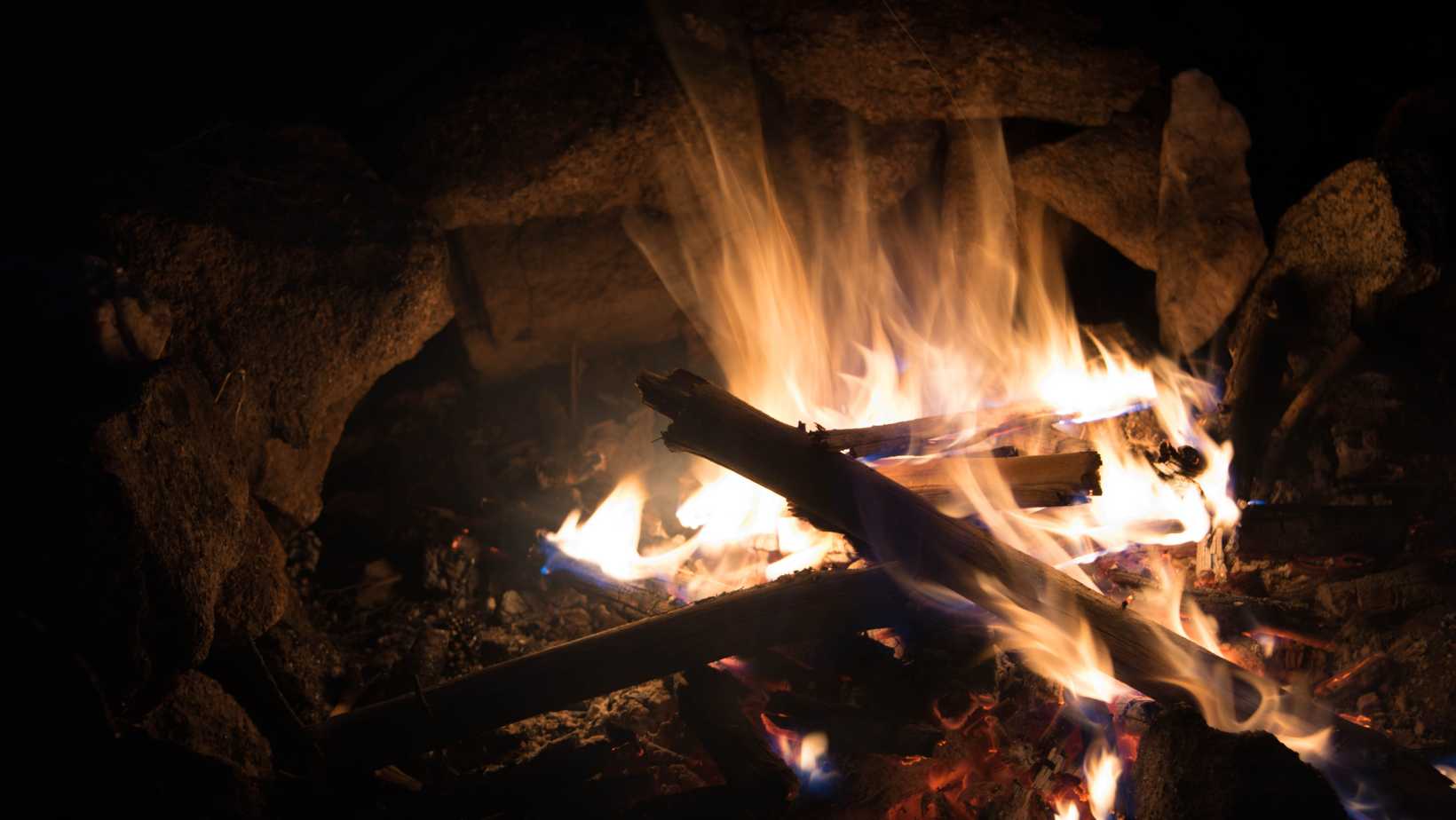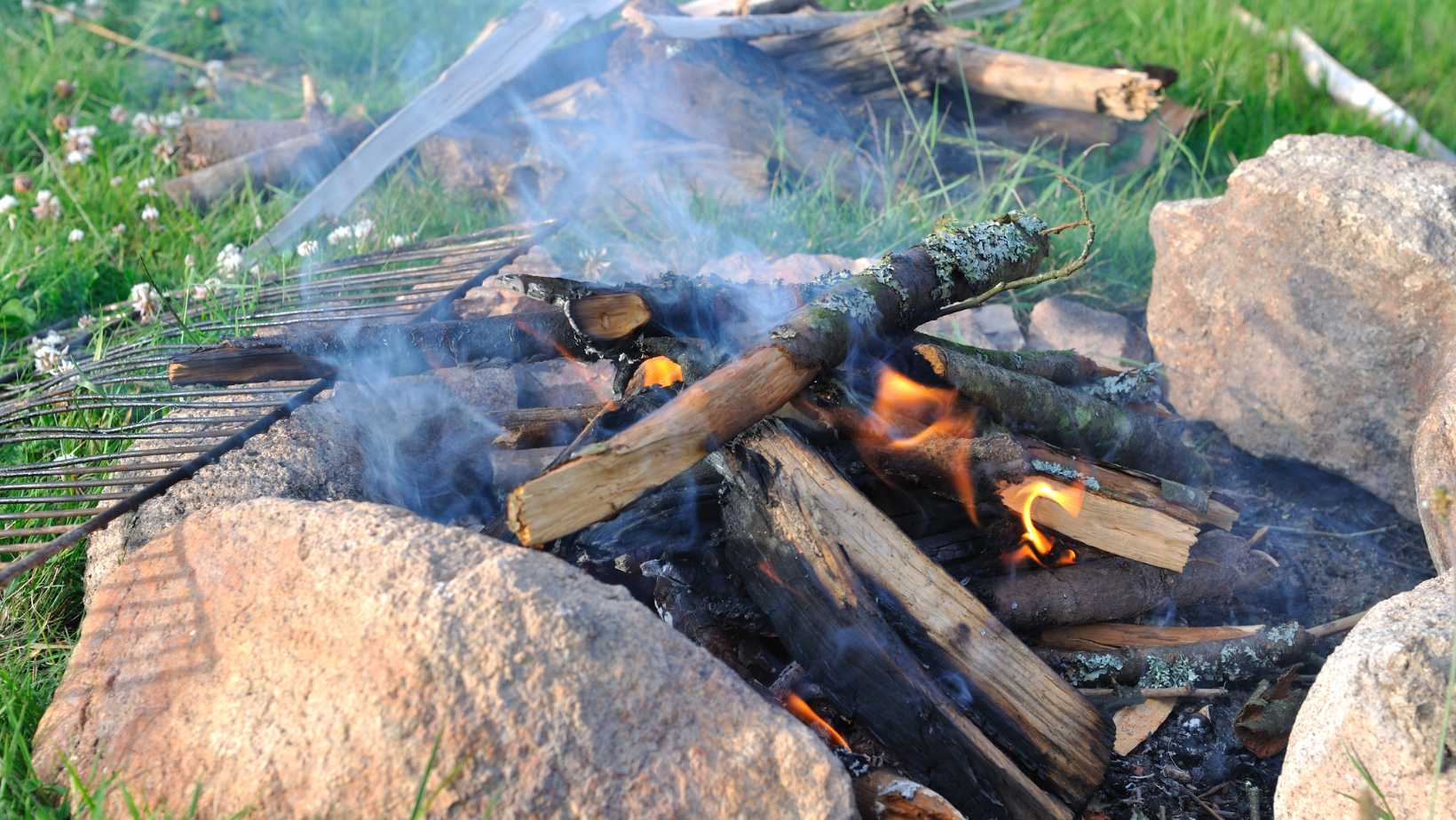
When spending time outdoors, a campfire can be a great way to stay warm and cook meals. However, building a campfire requires basic skills and knowledge, including knowing which materials are safe. For instance, heating stones on a campfire is a good way to keep warm, but not all stones are safe, and using the wrong type of stones can be dangerous.
Before selecting stones to heat in a campfire, you must know what type of rock you’re dealing with. Some stones, like limestone, may contain moisture and explode if heated too quickly. Others, like slate or granite, are safe to use and can retain heat for extended periods, making them ideal for keeping warm or cooking food.
Even with the right stones, following some basic safety measures is crucial. Never heat a stone that is too large or heavy to handle safely, and keep a safe distance from the fire when heating the stones. Remember that the stones will be hot; touching them directly with your skin can cause burns. With the right stones and the proper precautions, heating stones can be an excellent way to stay warm and safely enjoy your time outdoors.
What Stones Are Safe to Heat in a Campfire
When it comes to heating stones in a campfire, choosing the right type of stone is important to ensure safety and prevent any potential accidents. Unfortunately, not all stones are suitable for heating in a campfire, and using the wrong type of stone can result in it exploding and causing harm to anyone nearby.
So, what stones are safe to heat in a campfire? Here are some options:
- River Rocks are one of the most commonly used types of stones for heating in a campfire. They’re smooth, dense, and have been eroded by water over time, making them less likely to explode when heated.
- Soapstone – This type of stone is heat-resistant and can withstand high temperatures without cracking or exploding. Plus, it’s easy to carve and has a low risk of containing harmful minerals.
- Granite – This is another safe option for heating in a campfire. It’s a dense, hard stone that can hold heat well and doesn’t contain air pockets that can cause it to explode.
While these types of stones are generally safe to use in a campfire, it’s still important to exercise caution. Avoid placing stones directly into an open flame or hot coals, as this can cause them to crack or explode. Instead, heat them gradually in a cool part of the fire and always wear protective gloves when handling hot stones.
In summary, choosing the right type of stone is crucial when heating stones in a campfire. River rocks, soapstone, and granite are all great options that are generally safe. Still, it’s important to exercise caution and follow safety guidelines when handling hot stones to prevent potential accidents.
Preparing The Stones For a Campfire
One important aspect of having a successful campfire is knowing which stones are safe to heat. Choosing the wrong type of stone can result in serious injuries or even the stone exploding. Here are some steps to prepare the stones for your campfire.
Pick The Right Stones
The first step is to choose the right type of stones that will not crack or explode under the intense heat of the campfire. The most popular stones used in a campfire are granite rocks, basalt rocks, and sandstone. These rocks can withstand high temperatures and will not emit harmful chemicals.
Dry The Stones
Moisture in the stone can cause the stone to explode once exposed to heat, due to pressure build-up inside the rock. This can be avoided by drying the stones in the sun for at least two to three hours before using them in a campfire. Alternatively, you can put them close to the campfire before adding them to the fire.
Wash The Stones
It is always a good idea to wash the stones before use. This removes any dirt, sand, or chemicals that could pose a danger. Then, use clean water and a brush to scrub the dirt and other impurities off the stone.
Gradually Heat The Stones
As you add the stones to the campfire, ensure you do so gradually. This helps to prevent the stone from heating too quickly, and helps it gradually release any built-up moisture. If you heat the stone too quickly, it can cause the stone to crack or even explode.
By following these steps, you can ensure a safe and enjoyable campfire experience. Safety should be your top priority when handling fire and hot objects. So, make sure you choose the right type of stone, dry and wash them properly, and heat them gradually to avoid accidents.
Safely Using Stones in a Campfire
When it comes to heating stones in a campfire, it’s essential to understand what rocks are safe to use. Not all stones are suitable for this purpose. Some rocks might contain moisture or volatile crystals, which can cause them to explode when heated. To avoid accidents, it’s vital to follow a few guidelines when choosing what rocks to heat in your campfire.
Use Dry Stones:
Moisture can cause stones to crack or even explode when heated, so always use dry stones in your campfire. Stones left in the sun or a dry place are ideal.
Avoid River Rocks:
While river rocks are beautiful and abundant, they are typically unsuitable for campfire heating. River rocks often contain moisture and can crack or explode when heated. It’s best to stick to dry rocks that have not been near water.
Choose Hard Rocks:
Hard rocks like granite, basalt, and soapstone are excellent for heating in a campfire. They can withstand high temperatures and will not explode when heated properly. Softer rocks like sandstone or limestone should be avoided as they can crumble when heated.
Inspect The Stones:
Before you use any rocks in your campfire, inspect them carefully for cracks, fissures, or crystals. Any stone containing volatile crystals like mica or cracks should be discarded immediately.
Always exercise caution and use common sense when heating stones in your campfire. By choosing the right rocks and following these guidelines, you can enjoy a warm and safe campfire experience.


